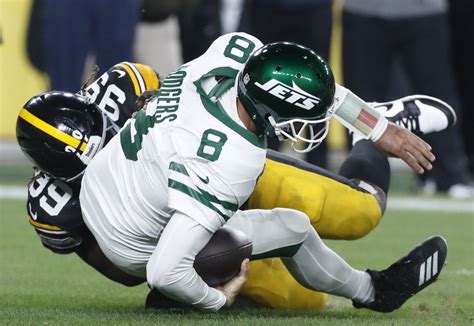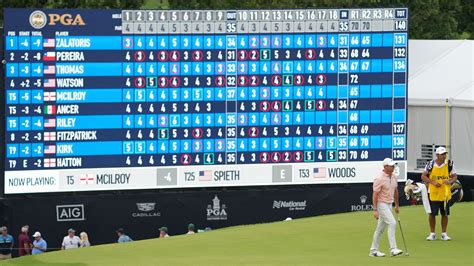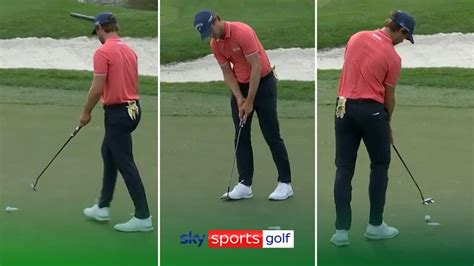
Luka Dončić’s potential future contract with the Los Angeles Lakers, once speculated to be worth $63 million annually, may be significantly impacted by the Dallas Mavericks’ recent performance, particularly their failure to advance past the regular season play-in tournament. This disappointing outcome could severely limit Dončić’s earning potential when he becomes eligible for free agency in 2026, depending on specific NBA collective bargaining agreement (CBA) stipulations and team performance thresholds.
Dallas Mavericks superstar Luka Dončić’s potential earnings are facing turbulence after the team’s failure to make the playoffs. What was once projected as a possible $63 million annual salary in a hypothetical move to the Los Angeles Lakers is now jeopardized by the Mavericks’ lackluster performance and resulting limitations on Dončić’s future contract eligibility. The current CBA rules, designed to reward players who remain with their original teams and achieve certain performance benchmarks, could penalize Dončić if the Mavericks continue to fall short of playoff contention.
Dončić, currently under contract with the Mavericks through the 2026-27 season, has a player option for the final year. This means he could become an unrestricted free agent in the summer of 2026. The allure of playing for a marquee franchise like the Lakers, combined with the prospect of a massive payday, had fueled speculation about a potential move. “The Lakers could offer Doncic a four-year, $251 million contract in 2026,” reported Grant Hughes of Bleacher Report, highlighting the financial stakes involved. However, the value of such a deal is intrinsically linked to Dončić’s eligibility for a “supermax” contract extension, which is significantly affected by team success.
The NBA’s CBA allows teams to offer designated veteran player extensions, often referred to as “supermax” contracts, to players who meet specific criteria. These criteria typically include winning an MVP award, being named to an All-NBA team, or winning Defensive Player of the Year. Crucially, a player can only qualify for a supermax extension from their original team or a team to which they were traded before their fourth NBA season. For Dončić, this means the Mavericks hold the exclusive right to offer him the most lucrative possible contract.
The potential roadblock for Dončić lies in the fact that the supermax eligibility also depends on the player leading their team to deep playoff runs or achieving significant individual accolades. If the Mavericks continue to struggle and Dončić fails to secure an MVP award or an All-NBA selection in the coming years, his leverage for negotiating a supermax deal, whether with the Mavericks or any other team via free agency, diminishes considerably.
Moreover, the Mavericks’ ability to offer Dončić the most money is tied to the NBA’s salary cap rules and the “Bird rights” exception, which allows teams to exceed the cap to re-sign their own players. However, the value of that potential contract is directly correlated with Dončić’s supermax eligibility. A team’s willingness to go deep into the luxury tax to retain a player is influenced by the perceived return on investment, and a player who isn’t a multiple-time All-NBA selection or MVP candidate might not command the same financial commitment.
The situation is further complicated by the Mavericks’ roster construction and their ability to surround Dončić with complementary talent. The team’s acquisition of Kyrie Irving has been met with mixed results, and Irving’s own free agency situation adds another layer of uncertainty. If the Mavericks fail to build a championship-contending team around Dončić, he might be more inclined to explore his options in free agency, regardless of the financial implications.
However, leaving the Mavericks would mean sacrificing the potential for a supermax contract, at least initially. While other teams could still offer Dončić a substantial contract, it wouldn’t reach the same financial heights as a supermax extension offered by Dallas. This creates a delicate balancing act for Dončić, weighing the desire for championship contention against the allure of maximizing his earning potential.
The current NBA landscape also plays a role in this equation. With several teams possessing significant cap space and a willingness to aggressively pursue top-tier free agents, Dončić would undoubtedly have multiple suitors if he chose to test the open market. However, the Lakers, specifically, have a history of attracting star players and a proven track record of success, making them a perennial contender for Dončić’s services.
Despite the potential financial ramifications, Dončić has consistently expressed his commitment to the Mavericks and the city of Dallas. He has repeatedly stated his desire to bring a championship to the franchise, and his loyalty to the team is undeniable. However, the pressure to win and compete at the highest level is immense, and if the Mavericks fail to make significant progress in the coming years, Dončić might be forced to re-evaluate his options.
The situation underscores the complex interplay between individual talent, team performance, and the NBA’s intricate financial rules. Dončić’s future earnings are not solely dependent on his own abilities but are also inextricably linked to the success of the Mavericks organization. As the 2026 free agency period approaches, the basketball world will be closely watching to see how this saga unfolds, with potentially significant implications for both Dončić and the Mavericks.
The failure to secure a postseason berth highlights systemic issues within the Mavericks organization, extending beyond just on-court performance. Factors such as coaching decisions, player development, and front-office strategy all contribute to the team’s overall trajectory and, consequently, influence Dončić’s potential financial future. A lack of consistent success on the court can erode a player’s market value, even one as exceptionally talented as Dončić. The perceived risk associated with investing a maximum or supermax contract in a player whose team consistently underperforms can deter potential suitors or lower the financial offers extended.
The Mavericks must demonstrate a clear commitment to building a winning culture and providing Dončić with the necessary support to compete for championships. This includes making strategic acquisitions, developing young talent, and fostering a cohesive team environment. Only by addressing these underlying issues can the Mavericks ensure that Dončić remains committed to the franchise and maximizes his earning potential.
The narrative surrounding Dončić’s potential move to the Lakers also underscores the allure of playing in a large market with a storied franchise. The Lakers’ brand recognition, combined with their history of success, makes them an attractive destination for top-tier players seeking both financial rewards and championship opportunities. The ability to play alongside other star players and compete for titles on a consistent basis is a powerful draw for free agents, and the Lakers have consistently leveraged this advantage to attract some of the biggest names in the sport.
The speculation about Dončić’s future also serves as a reminder of the inherent instability in the NBA landscape. Player movement has become increasingly common in recent years, with star players often exercising their right to choose their own destinations. This trend has created a more fluid and unpredictable environment, where teams must constantly adapt to changing circumstances and compete for talent on an ongoing basis. The Mavericks must be proactive in their efforts to retain Dončić and demonstrate their commitment to building a championship-caliber team.
The economic impact of Dončić’s decision extends beyond his individual earnings. His presence in Dallas has a significant positive impact on the city’s economy, generating revenue for local businesses and creating jobs. If Dončić were to leave the Mavericks, it would represent a significant economic loss for the city and the surrounding region. This underscores the importance of retaining star players and fostering a positive business climate that encourages them to remain in their current locations.
The Mavericks’ front office faces a complex challenge in navigating this situation. They must balance the desire to build a competitive team with the need to manage the team’s salary cap and make sound financial decisions. They must also be mindful of Dončić’s long-term goals and aspirations, and work to create an environment that aligns with his vision for the future. This requires open communication, mutual respect, and a shared commitment to success.
The pressure on the Mavericks to improve their performance in the coming years is immense. The team’s future success hinges on their ability to build a winning team around Dončić and convince him that Dallas is the best place for him to achieve his goals. The financial implications of their decisions are significant, and the team’s long-term viability could be at stake.
Ultimately, Dončić’s future remains uncertain. While he has expressed his loyalty to the Mavericks, the lure of playing for a championship-contending team and maximizing his earning potential could prove too strong to resist. The coming years will be critical in shaping Dončić’s legacy and determining his place in NBA history. The Mavericks must act decisively to ensure that he remains a part of their future.
The implications of Dončić’s situation also resonate throughout the NBA, highlighting the importance of team success in maximizing player value and the challenges faced by smaller-market teams in retaining superstar talent. The league’s competitive balance is constantly evolving, and the ability to attract and retain top-tier players is crucial for sustained success. The Mavericks’ experience serves as a cautionary tale for other teams, underscoring the need for proactive planning and strategic decision-making.
The financial aspects of NBA contracts are often complex and difficult to understand. The CBA is a lengthy and intricate document that governs the relationship between players and teams, and it contains numerous provisions that can impact player salaries and contract negotiations. The “supermax” exception, for example, is designed to reward players who achieve significant individual accolades or lead their teams to deep playoff runs, but it also creates a system where teams can overpay for talent and potentially hinder their ability to build a balanced roster.
The Mavericks must carefully consider the long-term implications of their financial decisions and avoid making short-sighted moves that could jeopardize their future success. They must also be transparent with Dončić about their plans and communicate their commitment to building a winning team. By fostering a strong relationship with their star player and demonstrating a clear vision for the future, the Mavericks can increase their chances of retaining Dončić and ensuring their long-term viability.
The discussion about Dončić’s potential earnings also highlights the changing dynamics of player empowerment in the NBA. Players are increasingly taking control of their own careers and exercising their right to choose their own destinations. This trend has shifted the balance of power between players and teams, and it has created a more competitive market for talent. Teams must adapt to this new reality and be proactive in their efforts to attract and retain top-tier players.
The Mavericks’ situation underscores the importance of building a strong team culture and fostering a positive environment where players feel valued and appreciated. Players are more likely to remain with teams where they feel supported and respected, and where they have a clear opportunity to achieve their goals. The Mavericks must prioritize creating a culture of excellence and providing Dončić with the necessary resources to succeed.
The financial implications of Dončić’s decision will also be felt throughout the league. His contract will set a benchmark for other star players seeking to maximize their earnings, and it will influence the salary cap and the overall financial landscape of the NBA. The league’s economic health is dependent on the ability of teams to generate revenue and attract fans, and the presence of star players like Dončić is crucial for driving that revenue.
The Mavericks must recognize the importance of Dončić’s contributions to the team and the city of Dallas, and they must be willing to invest in his future. By providing him with the necessary support and building a winning team around him, the Mavericks can ensure that he remains a part of their organization for many years to come.
The narrative surrounding Dončić’s potential move to the Lakers also highlights the enduring appeal of playing for a franchise with a rich history and a global fanbase. The Lakers are one of the most iconic teams in sports, and they have a long tradition of attracting star players and competing for championships. The opportunity to play in Los Angeles, with its vibrant culture and numerous endorsement opportunities, is a powerful draw for many players.
The Mavericks must compete with the Lakers and other big-market teams by creating their own unique identity and building a culture of success. They must leverage their strengths and capitalize on their advantages to attract and retain top-tier talent. By building a strong brand and fostering a loyal fanbase, the Mavericks can create a compelling environment for players to thrive.
The financial aspects of NBA contracts are constantly evolving, and the Mavericks must stay abreast of the latest trends and developments. They must understand the intricacies of the CBA and be able to navigate the complex rules and regulations that govern player salaries and contract negotiations. By staying informed and making sound financial decisions, the Mavericks can ensure that they are well-positioned to compete for talent and build a winning team.
The discussion about Dončić’s potential earnings also raises questions about the fairness of the NBA’s salary cap system. Some argue that the cap restricts player salaries and prevents them from earning their true market value. Others argue that the cap is necessary to maintain competitive balance and prevent teams from overspending on talent. The debate over the salary cap is ongoing, and it is likely to continue to shape the financial landscape of the NBA for years to come.
The Mavericks must work within the existing salary cap system to build a competitive team and retain Dončić. They must be creative and resourceful in their approach, and they must be willing to make tough decisions. By carefully managing their resources and making strategic investments, the Mavericks can maximize their chances of success.
The narrative surrounding Dončić’s potential move to the Lakers also underscores the importance of building a strong relationship between players and teams. Players are more likely to remain with teams where they feel valued and respected, and where they have a clear opportunity to achieve their goals. The Mavericks must prioritize building a strong relationship with Dončić and fostering a culture of trust and mutual respect.
By communicating openly and honestly with Dončić and demonstrating their commitment to his success, the Mavericks can increase their chances of retaining him and building a long-term partnership. The future of the Mavericks organization depends on their ability to build a strong and enduring relationship with their star player.
The discussion about Dončić’s potential earnings also highlights the importance of developing young talent. The Mavericks must invest in their player development program and provide young players with the necessary resources to succeed. By developing their own talent, the Mavericks can reduce their reliance on free agency and build a more sustainable team.
The Mavericks must also be willing to give young players opportunities to play and develop on the court. By giving them meaningful minutes and allowing them to make mistakes, the Mavericks can help them reach their full potential. The development of young talent is crucial for the long-term success of the Mavericks organization.
The financial implications of Dončić’s decision will be felt throughout the league, and the Mavericks must be prepared to adapt to the changing landscape. The NBA is a dynamic and competitive environment, and the Mavericks must be proactive in their efforts to stay ahead of the curve. By embracing innovation and adapting to change, the Mavericks can ensure that they remain a competitive force in the league for many years to come.
Frequently Asked Questions (FAQ)
1. What is a “supermax” contract and how does it affect Luka Dončić’s potential earnings?
A “supermax” contract is a designated veteran player extension that allows NBA teams to offer their star players significantly higher salaries than other teams. To be eligible for a supermax, a player typically needs to meet specific criteria, such as winning the MVP award, being named to an All-NBA team, or winning Defensive Player of the Year. Crucially, a player can generally only qualify for a supermax extension from the team that drafted them or to which they were traded early in their career. For Dončić, this means the Mavericks hold the exclusive right to offer him the most lucrative possible contract. If the Mavericks continue to underperform and Dončić does not achieve these accolades, his potential for a supermax contract, whether with the Mavericks or another team via free agency, is reduced.
2. How does the Dallas Mavericks’ recent performance impact Luka Dončić’s future contract options?
The Mavericks’ failure to advance past the play-in tournament directly affects Dončić’s eligibility for a supermax contract extension. Since supermax eligibility is tied to individual accolades and team success, the Mavericks’ struggles limit Dončić’s chances of meeting the necessary criteria. A lack of playoff success could diminish his leverage in negotiations, potentially lowering his future earning potential compared to what he could receive with a supermax.
3. If Luka Dončić leaves the Dallas Mavericks in 2026, what kind of contract could he expect from another team like the Los Angeles Lakers?
While other teams can offer Dončić a substantial contract, it wouldn’t initially reach the financial heights of a supermax extension offered by Dallas. According to Bleacher Report, the Lakers could offer Dončić a four-year, $251 million contract in 2026; however, this is not a “supermax” contract and is significantly less than he could make staying in Dallas and being supermax-eligible. The exact figure would depend on the NBA’s salary cap at the time and the specific terms negotiated. He would still likely command a maximum or near-maximum contract, but leaving Dallas means forgoing the potential supermax payout.
4. What factors might influence Luka Dončić’s decision to stay with the Dallas Mavericks or explore free agency?
Several factors will weigh heavily on Dončić’s decision. These include: the Mavericks’ ability to build a championship-contending team around him, his personal desire to win a championship in Dallas, the financial incentives offered by the Mavericks, and the allure of playing for a high-profile franchise like the Los Angeles Lakers. The overall team environment, coaching staff, and the presence of other star players will also play a role in his decision-making process.
5. What steps can the Dallas Mavericks take to improve their chances of retaining Luka Dončić?
The Mavericks need to demonstrate a clear commitment to winning and building a championship-caliber team. This includes making strategic acquisitions of talented players who complement Dončić’s skills, improving player development programs, and creating a positive and supportive team culture. The front office also needs to communicate effectively with Dončić, address his concerns, and show him that they are fully invested in his long-term success with the franchise. Ultimately, on-court success and a tangible path to contention will be the most persuasive factors in convincing Dončić to stay in Dallas.









